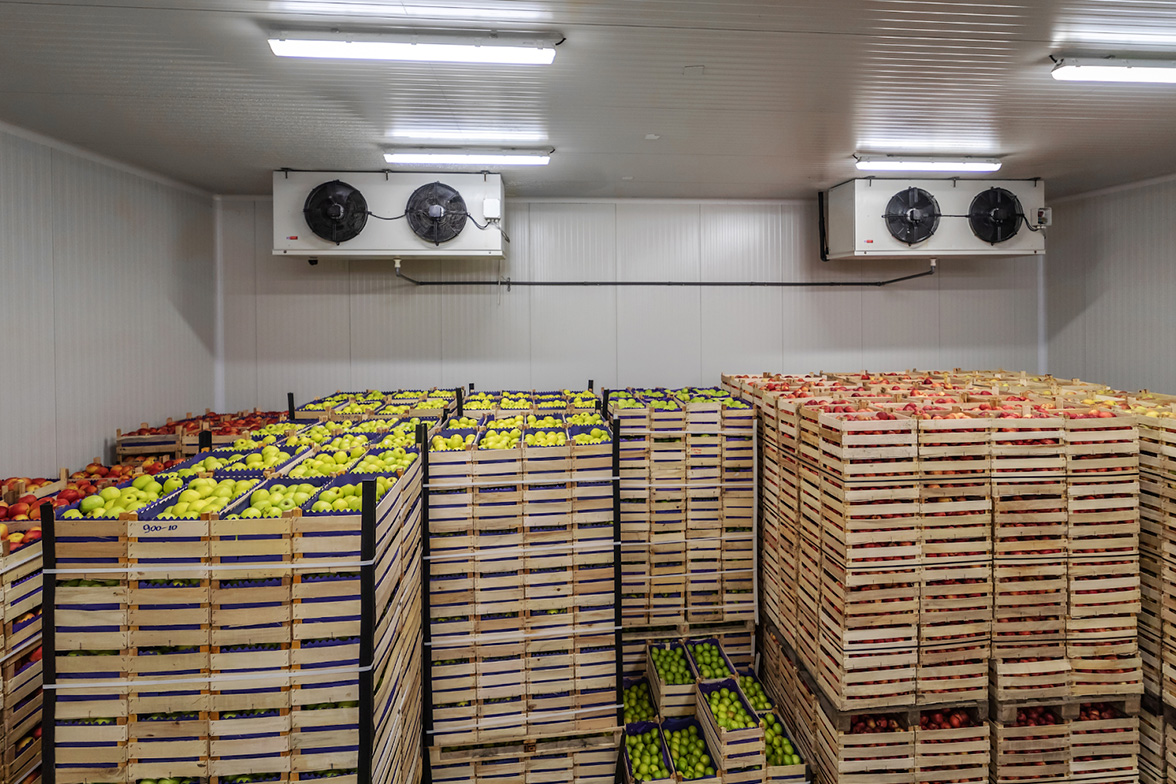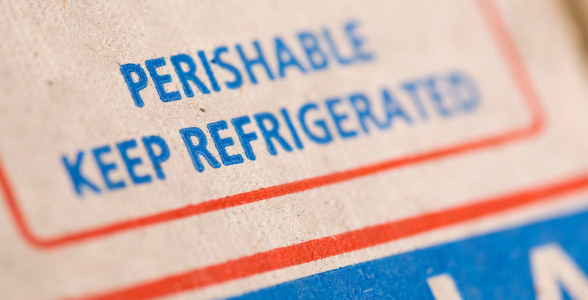Shipping perishables presents unique challenges that require careful planning and expertise. It’s not just about getting them from point A to point B—it’s about ensuring they arrive as fresh and flavorful as when they left your facility.
As a business owner, you know that maintaining quality is everything. But how do you keep your products at the perfect temperature and prevent spoilage during transit?
Whether you’re sending fresh produce, dairy, beer, or kombucha, maintaining product integrity throughout the shipping process is imperative. As experts in beverage logistics and shipping perishables, we have a few secrets to share when learning how to ship perishable food. We’ll share some of the industry’s best practices so you, too, can keep your goods fresh, safe, and crisp all the way from the source to your client’s table.
The Challenges of Shipping Perishable Foods
Understanding how to ship refrigerated items is crucial for businesses in the food and beverage industry. This is because perishable goods, like fresh fruits, vegetables, dairy, meat, and seafood, spoil quickly if not handled and stored correctly.
Keeping food cold from the farm to your fridge is called the cold chain. It’s like a relay race where suppliers pass the food or goods along the supply chain, keeping it within a safe temperature range. If the cold chain breaks when you ship frozen food, even for a short time, the product can spoil or lose its intended flavor.
Additionally, delays during transit can expose your goods to fluctuating conditions, leading to potential spoilage. Packaging is another critical factor; it must be robust enough to protect against temperature shifts and physical damage.
No one wants to eat spoiled food, right? It’s not only a waste of money but can also be a health hazard. That’s why it’s so important to handle refrigerated foods with care, especially when shipping refrigerated items.

Packaging and Preparation Tips
Choosing the right packaging materials and using expert techniques is the best way to ship perishable food. This simple but effective step can significantly reduce the risk of spoilage and damage during transit.
Insulated containers, watertight plastic bags, thermal liners, and cold packs are key components of effective packaging. Insulated containers help maintain consistent temperatures, while thermal blankets or liners provide additional insulation. Frozen gel packs or ice packs are used to lower and maintain the temperature within the package.
Frozen food items can become moist or wet during transit as the ambient temperature fluctuates. When this happens, your refrigerated food items will be vulnerable to mold growth. Accidental spills can also occur during loading, unloading, or when passing rough roads. To prevent damage to your goods, use waterproof containers and include desiccants inside the packaging.
Shipping and Handling Tips
Knowing how to ship perishable goods effectively requires careful consideration of several factors. Choosing the right shipping carrier and service is one of them. Consider factors such as transit time, cost, and the carrier’s reputation for handling temperature-sensitive products. Real-time tracking is essential for monitoring shipment conditions and ensuring timely delivery.
Proper handling procedures at shipping and receiving facilities are vital for maintaining the cold chain. Mitigate risks by clearly labeling packages as perishable for efficient sorting and delivery. To maintain optimal temperature control throughout the shipping process, consider the following:
Reefers
Reefers are trucks with active cooling and heating systems. They are best used for transporting medicine, craft beer, kombucha, certain kinds of electronics, delicate produce like fresh flowers, vegetables and fruit, as well as raw meat or seafood, fresh milk, and frozen foods like ice cream.
Because they can keep temperatures controlled, using reefer trucks can help prevent food poisoning bacteria from multiplying. They are extremely reliable, but they are not the cheapest way to ship perishable food. It’s best to only use them for extremely sensitive items, like to ship frozen food.
Temperature-Controlled Containers
Not all perishables require constant refrigeration; sometimes you only need to travel short distances or have smaller deliveries. In these situations, containers that can help retain temperatures within short distances would be your best option.
A temperature-controlled shipping container is insulated and protects against heat and cold, protecting your products from the dangers of heat exposure or freezing. Whether you’re using refrigerated trucks, insulated containers, or even portable cold storage units, temperature-controlled containers ensure that your goods stay fresh and flavorful from the moment they leave your facility to the time they reach your customers.

Cheapest Way to Ship Perishable Food
Shipping frozen foods or refrigerated items can be costly, but there are strategies to cut costs without compromising product quality.
LTL Shipping
This method can be a cost-effective option for large quantities of perishable goods. By consolidating shipments with other businesses, you can share transportation costs. However, LTL shipping cold food might not be suitable for small-scale operations or perishable items with short shelf lives.
The Pallet Parka
This packaging solution helps maintain an item’s core temperature so it doesn’t lose its quality against frost, heat, light, and minor force. They provide additional insulation, reducing the need for excessive amounts of dry ice or gel packs. You can reduce packing materials costs by maximizing the use of your shipping containers and minimizing void space with packing peanuts. The Pallet Parka is also adjustable, reusable, and foldable, so once your product has been delivered, it can easily be returned in the Parka Tote to you via parcel freight, ready to use for your next delivery.
Refrigerated Freight Consolidation
This method combines shipments from multiple businesses to fill a refrigerated truck, resulting in lower shipping costs for everyone.
[No] Spoiler Alert: How to Ship Perishable Food the Easy Way
Take the guesswork out of perishable food shipping. Partnering with a logistics expert who knows how to ship perishable food and ingredients to keep your losses at a minimum should be part of your business strategy.
Brew Movers specializes in fragile and temperature-controlled shipping, offering reliable cold chain logistics solutions tailored to your business needs. Our innovative approach to shipping frozen food, craft beverage ingredients, and more, is cost-effective and efficient.
Don’t let the challenges of shipping refrigerated items spoil your hard work—call Brew Movers now to discover how we can move your goods to and from anywhere in North America—fresh, intact, and right on schedule!

